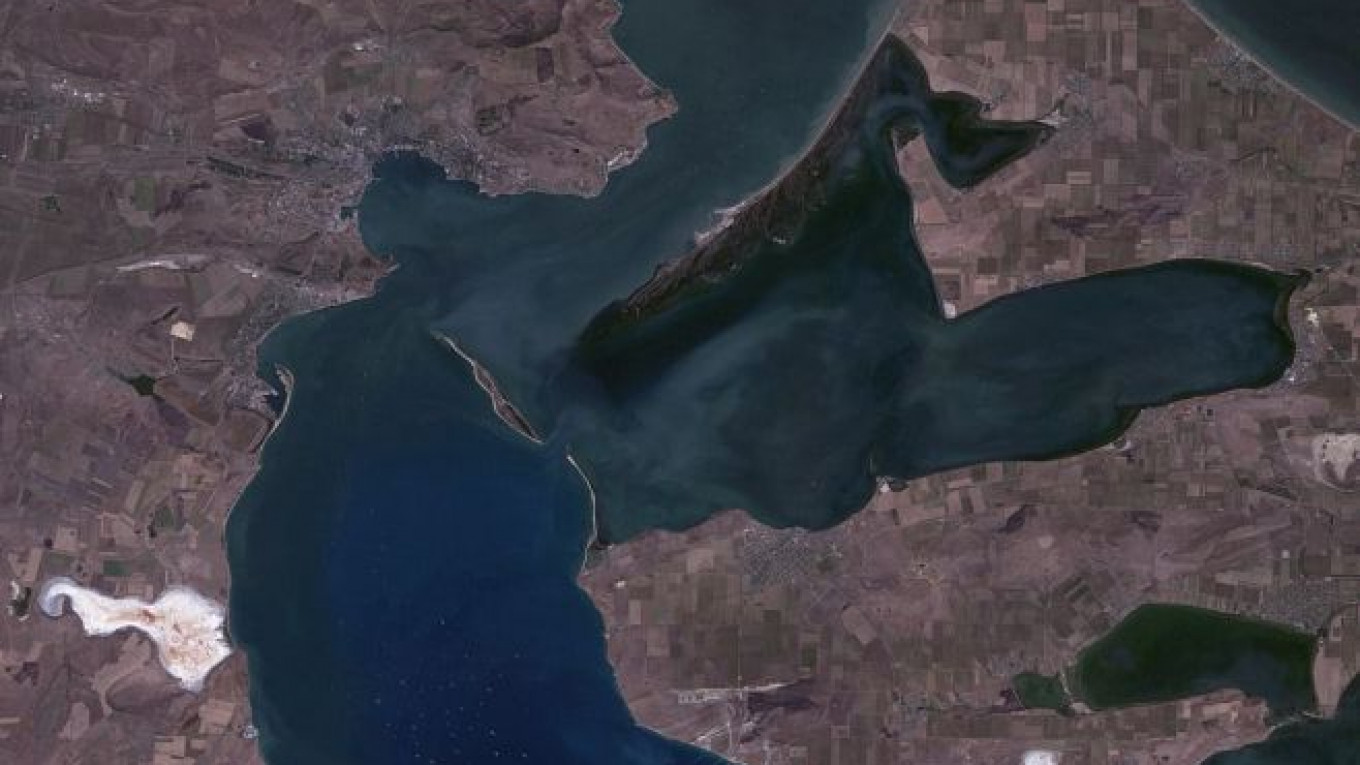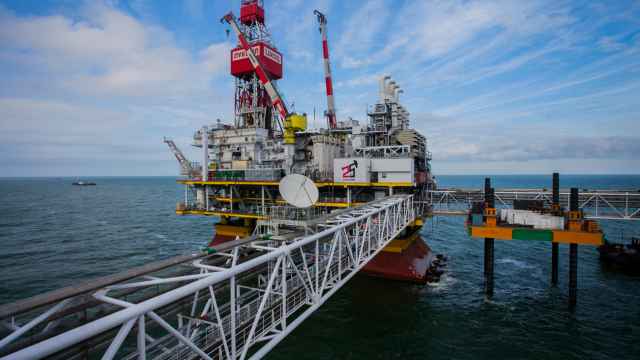The government is facing a critical choice in its increasingly expensive plans to build the first direct road connection between Russia and Crimea via a bridge over the Kerch Strait — either charge a fee for crossing the bridge, or finance the entire project from the state budget.
Deputy Prime Minister Dmitry Kozak laid the issue bare last week. "In order for there to be a private investor, there must be profit. And what does that mean? That it is necessary to set a toll. That is a political decision," Kozak said, RIA Novosti reported.
Kozak, who was charged with facilitating the integration of Crimea following Russia's annexation of the peninsula in March, went on to deny reports that private investors would participate in the project.
The government could only set a toll on the Kerch Bridge if there was already a toll-free alternative in place, Kozak said. Other than air travel, the only way to travel directly from Russia to Crimea is by ferry.
But in complete contradiction of Kozak's stance, Finance Minister Anton Siluanov later last week indicated that the bridge may well become a toll road, which would put it in a position to receive investment from the National Welfare Fund, one of Russia's two oil revenue-rich sovereign wealth funds.
"Freight transport and heavy haulers could well be charged for passage on the bridge, normal vehicles may be as well. If the price is acceptable for trips, why not?" Siluanov said in an interview with television channel Rossia 24, RIA Novosti reported.
The National Welfare Fund could take on up to 40 percent of the cost of the project, which is currently estimated at between 200 billion and 250 billion rubles ($6 billion and $7 billion), Siluanov said.
The price tag for the Kerch Bridge has mounted steadily in recent months, from about 50 billion rubles ($1.5 billion) in March to the current estimates cited by Siluanov, which would make it the most expensive bridge ever built in Russia.
Avtodor, the state road builder that is managing the project, estimated in June that between 142 billion rubles and 228 billion rubles ($4 billion and $6 billion) could be raked in over the next 20 years if the state charges a toll for passage, ITAR-Tass reported.
The total cost of developing Crimea and Sevastopol through 2020, including the bridge, is expected to reach 620 billion rubles ($18 billion), Regional Development Minister Igor Slyunyayev said earlier this month, RIA Novosti reported.
See also:
Russian-Built Bridge in Crimea Could Become World's Most Expensive
A Message from The Moscow Times:
Dear readers,
We are facing unprecedented challenges. Russia's Prosecutor General's Office has designated The Moscow Times as an "undesirable" organization, criminalizing our work and putting our staff at risk of prosecution. This follows our earlier unjust labeling as a "foreign agent."
These actions are direct attempts to silence independent journalism in Russia. The authorities claim our work "discredits the decisions of the Russian leadership." We see things differently: we strive to provide accurate, unbiased reporting on Russia.
We, the journalists of The Moscow Times, refuse to be silenced. But to continue our work, we need your help.
Your support, no matter how small, makes a world of difference. If you can, please support us monthly starting from just $2. It's quick to set up, and every contribution makes a significant impact.
By supporting The Moscow Times, you're defending open, independent journalism in the face of repression. Thank you for standing with us.
Remind me later.






